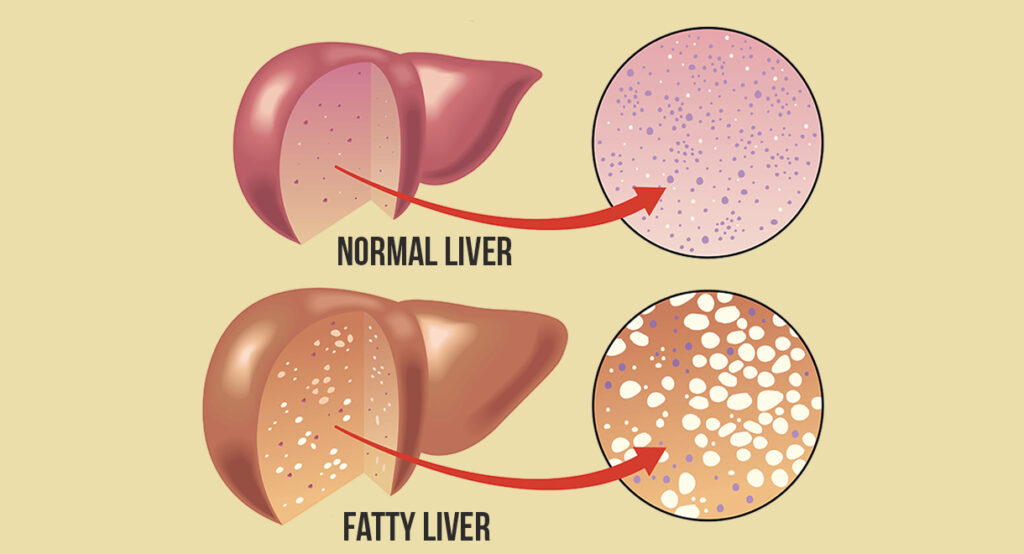Fatty liver disease, also known as hepatic steatosis, is a prevalent liver condition often associated with obesity, insulin resistance, and metabolic syndrome. Fatty liver programs are structured plans or protocols developed by healthcare professionals to offer comprehensive support and guidance to individuals diagnosed with fatty liver disease. These programs typically include a combination of medical evaluation, lifestyle modifications, dietary changes, physical activity recommendations, and ongoing monitoring to manage the condition effectively.
Fatty liver programs aim to educate patients about the causes and risk factors of fatty liver disease, emphasize the importance of adopting a healthy lifestyle, and provide personalized strategies to reduce liver fat accumulation and improve liver function. Depending on the severity of the condition and individual needs, these programs may involve consultations with hepatologists, gastroenterologists, dietitians, and other healthcare providers to develop a tailored approach for each patient.
We provide the best Fatty Liver Programs in HSR Layout by the best liver doctor in HSR Layout. Contact us today or call us now.
Key components of fatty liver programs may include:
- Medical Assessment: Comprehensive evaluation of liver health through blood tests, imaging studies (such as ultrasound or MRI), and liver biopsy if necessary to assess the extent of liver damage.
- Lifestyle Modification: Guidance on adopting healthy habits such as weight loss, regular exercise, smoking cessation, and limiting alcohol consumption to reduce liver fat accumulation and improve overall health.
- Dietary Intervention: Customized nutritional plans focusing on a balanced diet rich in fruits, vegetables, whole grains, lean proteins, and healthy fats while minimizing intake of processed foods, sugary beverages, and saturated fats.
- Physical Activity Recommendations: Individualized exercise prescriptions tailored to the patient’s fitness level and preferences, aiming to increase physical activity and promote weight loss.
- Behavioral Support: Counseling and behavioral interventions to address factors such as stress, emotional eating, and adherence to treatment plans.
- Regular Monitoring: Ongoing follow-up visits and monitoring of liver enzymes, liver function tests, and imaging studies to track progress and make adjustments to the treatment plan as needed.
Benefits of Fatty Liver Programs:
- Liver Health Improvement: Fatty liver programs can help reduce liver fat accumulation, improve liver function, and prevent progression to more severe liver conditions such as non-alcoholic steatohepatitis (NASH) and cirrhosis.
- Risk Reduction: By addressing underlying risk factors such as obesity, diabetes, and metabolic syndrome, fatty liver programs can reduce the risk of cardiovascular disease, diabetes complications, and other related health issues.
- Symptom Relief: Patients may experience relief from symptoms such as fatigue, abdominal discomfort, and elevated liver enzymes as liver health improves.
- Enhanced Quality of Life: Successful management of fatty liver disease through structured programs can lead to improved overall well-being, increased energy levels, and better physical and mental health.
- Long-term Health Benefits: Implementing lifestyle modifications and behavioral changes advocated in fatty liver programs can have lasting effects on liver health and overall health, promoting longevity and disease prevention.

